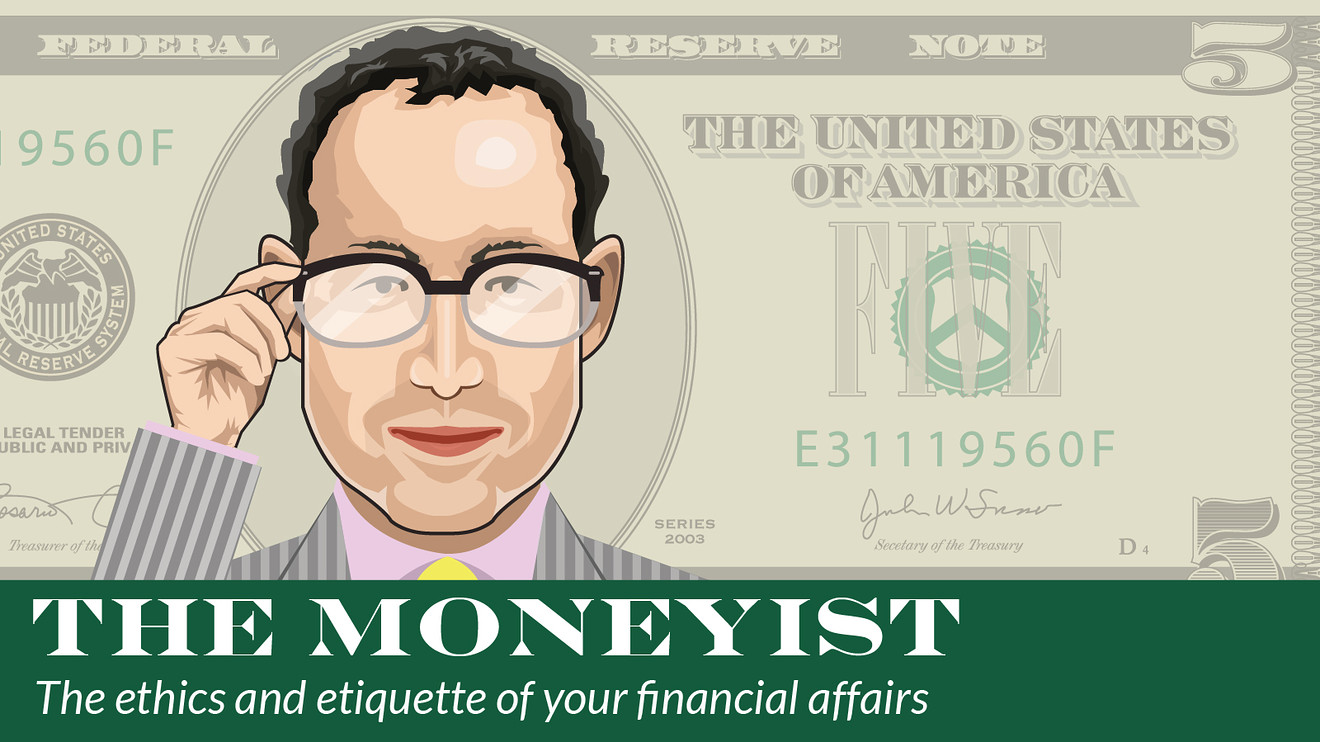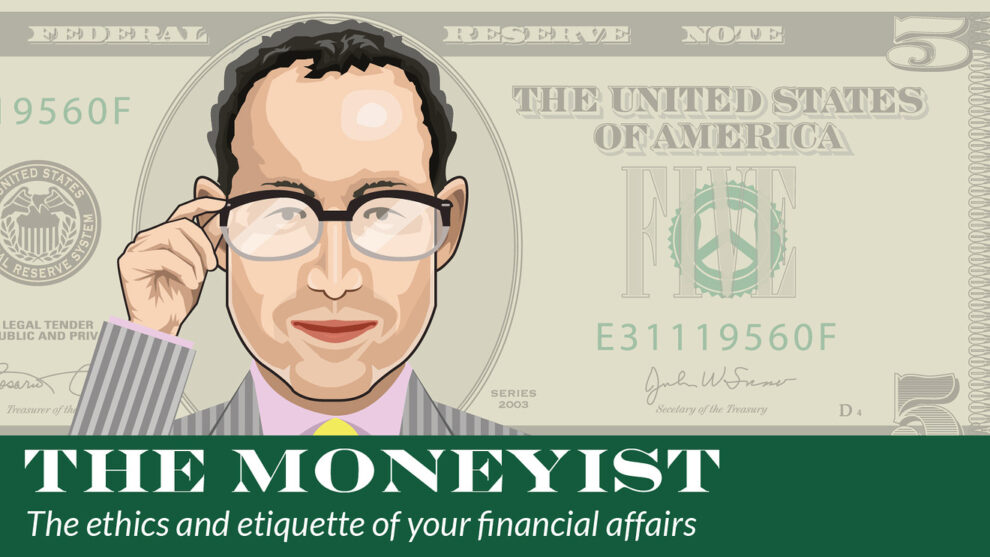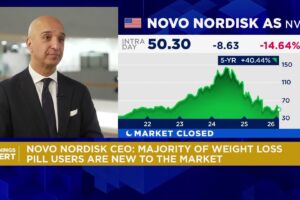
Dear Moneyist,
The week, I got my learners permit in the mail. My grandfather gave me a very generous option to take $20,000 as a gift for my first car, or save up the money and buy one myself. There was an exception however: the $20,000 meant I had to settle with a car of his choosing.
I have always taken the “safe route” as I did with most of my financial decisions, relying on my family to help me along the way.
The Moneyist:‘More help is on the way’: The long wait is over for second stimulus check, but will $600 be enough?
My family is very traditional. Before COVID, we had weekend dinners once a week, and we met for birthdays and sporting events — my grandparents lived in the same house for three decades, and my parents lived no more than a mile up the road during the first 25 years of my life.
We are a very tight-knit group.I love my family. But in my experience, money and a lack of boundaries can lead to a real mixed bag of emotions.
“ ‘We are a very tight-knit group.I love my family. But in my experience, money and a lack of boundaries can lead to a real mixed bag of emotions.’ ”
When I turned 18, I was gifted with a stock portfolio. It was worth about $150,000 and allowed me to use the money to go to college.
Not all of my decisions were well received. I bummed my way through college — got a seven-year bachelor’s degree. I had no sense of direction. I was unmotivated. I had hobbies and interests, but they were mostly fruitless endeavors with little return on investment that made my parents irate.
Eventually, one of our conversations led me to discover my family had access to my financial account and had been viewing my activity for well into my 20s. That was a major rift in our relationship, but when the conversations normally revolve around money and success it’s just part of the norm. Like I said, I still love them.
After the account-access issues came to light, I started making my own major financial decisions, and trying desperately to not think about the repercussions. I had not been used to or capable of making my own choices — without knowing I had a financial safety net provided by my family to catch me if and when I fell.
Next, I saved up as much as I could, and took a risk by zeroing out my investment account, putting the remaining money in property, and then into a business a few years later. When word got around that I left my job, and I was living off a checking account and a ramen noodle diet, concerned phone calls and texts came in every other day.
I worked hard for 8 years, and I consider myself extremely fortunate given my circumstances. I sold the business and the property (maybe a little prematurely), but I earned enough on my own to generate a healthy portfolio, a modest lifestyle and enough left over to cover the cost of what the family gave me. Now I’m considering giving the money back.
“ ‘Eventually, one of our conversations led me to discover my family had access to my financial account and had been viewing my activity for well into my 20s.’ ”
As you can imagine, the act of giving my early inheritance back would be viewed as a slap in the face. In my family, you don’t do things like move out of state, not show up to get-togethers, and surely you don’t send gifts back unless you’re trying to send a message. This is a decision I do not take lightly.
It took years for me to realize how important financial independence is. It’s not something that’s simply given. I learned on my own that regardless of whether you win or lose, you have to put yourself in control of your life, create your own process and stick to it to achieve your goals — that’s what I consider to be personal success.
Now I yearn for my own independence and, without sounding too dramatic, I know in this instance it comes with its own set of parameters. I’m grateful for their investment in me because it helped me learn these valuable lessons which, in my opinion, is even more reason to give it back.
What would you do?
Independent Man
Dear I.M.,
You did your grandfather a great service by accepting his generosity. You allowed him to help you.
You wanted to show your family that you are an independent man and that you can live your life free from their influence, however well meaning their interference may be, and that you can make good, smart financial decisions by yourself, and build a successful career and life for yourself. The good news is that you have done that. Embrace your success, and what led you to this point.
Giving this inheritance back won’t validate your personal and professional journey, and keeping this inheritance won’t invalidate that journey. You used the investment to give yourself a start in life. It is part of your story, and it has helped make you the man you are today. Many people have made millions with no kick start and many have lost millions who have inherited far more than you.
You are aware that many people don’t have wealthy families to provide a financial safety net, or seed money. This was not a debt, it was a gift. If your grandfather had loaned you money, by all means pay it back. But he did not. He gave this to you to help you, and because he loves you, and to give it back now would undo that goodwill, and create more yearslong problems with your family.
Want to read more?Follow Quentin Fottrell on Twitterand read more of his columns here.
Your family’s interference in your life is a separate issue that will not go away just because you give this money back. The solution to this part of your problem doesn’t cost $150,000. It is free. Your only responsibility is to yourself and to tell your family what your needs are. “I need you to allow me to live my life without questions or commentary, and to make my own mistakes.”
If you want their advice, you can tell them that you will seek it out. But until that happens, you NEED them to not offer unsolicited advice or ask questions about your personal or financial life. It’s a very simple equation: You tell them what your needs are, and they choose to respect them or not. If they do not respect them, you don’t have to engage with their calls or texts.
If your family ask you questions about your business or personal life over dinner, and you feel like they are crossing a line, you merely have to say, “I appreciate your interest comes from a place of love, but I don’t want to discuss that.” The only person you have to prove yourself to is you. And, honestly, you don’t even have to do that. You just have to do the best you can.
What use is it having all this money if he can’t help you? It was an act of generosity, but it was also an act of love. Don’t give the money back. Set up a 529 college savings plan for younger family members instead, or a fellowship in your grandfather’s name at his or your alma mater. There are many things you can do with the money to give back instead of giving it back.
Hello there, MarketWatchers. Check out the Moneyist private Facebook FB, -0.26% group where we look for answers to life’s thorniest money issues. Readers write in to me with all sorts of dilemmas.
Quentin Fottrell is MarketWatch’s Moneyist columnist. You can email The Moneyist with any financial and ethical questions at [email protected]. By emailing your questions, you agree to having them published anonymously on MarketWatch.









